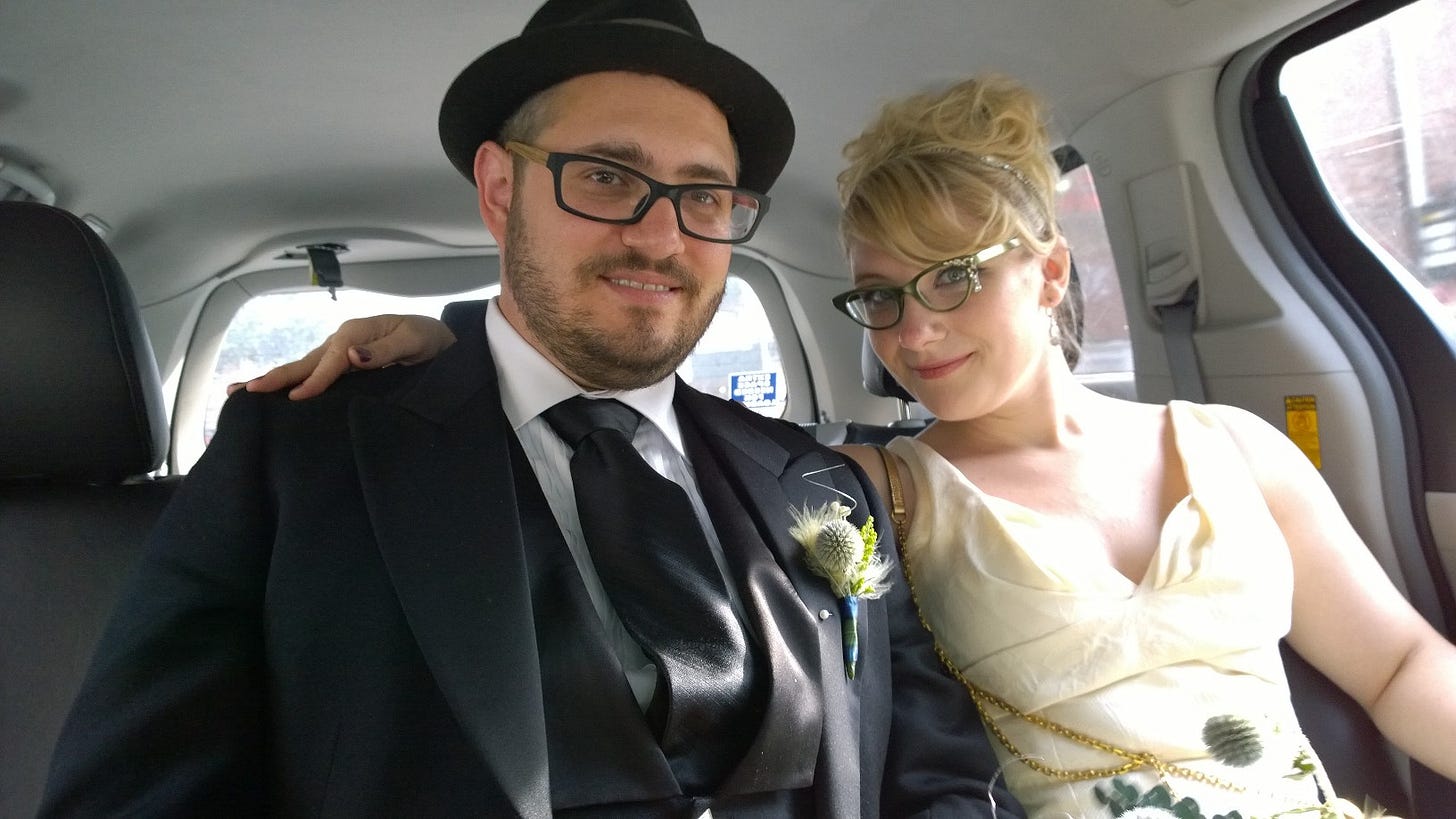The Frontier Psychiatrists is a daily health-themed publication. A psychiatrist writes it. Please consider supporting this publication with a share or subscription.
One of the problems with selling reassurance, which is a lot of what half-baked therapy is, is that in addition to being ineffective, it worsens the problem. Reassurance-seeking can be a compulsion. I've heard a lot of online therapy ads. None of them seem to be targeting issues that, as a therapist, I address.

Therapy is a powerful intervention. It is a neuromodulation, using the most fundamental tools humans possess, the ability to re-synchronize someone elelse'srain by being curious about it. However, not all therapy seeking finds the therapy that would be the most useful.
Let me introduce you to my friend, grudgingly, the brain circuitry that drives a disorder that we unfortunately call obsessive-compulsive disorder. I say unfortunate because it doesn't do a great job of branding itself. It sounds like something other people have. It sounds like something you might make a joke about. I am a little obsessive. Obsessions are thoughts you can't get rid of. Some of us have worries. Some of us think about things on repeat. That might be an obsession— when you can't stop thinking about something because it intrudes into your every moment. This is a different kind of anxiety than anxiety that does not have a specific intrusive thought as part of the experience.
Some people feel anxious and feel it in their body; it is their heart racing, it is in their stomach, it is in their muscles, and it feels like it is in their bones. But it is not necessarily about something specific. It's not that nagging thing. That thing that's knocking on the door. That thing that you want to check about to make sure.
Checking to make sure is a “feature” as opposed to a “bug” in most circumstances. This is because making unchecked actions without care will lead to mistakes.
For some, checking to make sure becomes something they lose control over. It feels good for about three seconds— to check! To make sure. But what if I did not check just right? The answer is …check again. Not really. It's your brain, though. It gets to say what makes sense to it.
The distress one feels around checking or not checking? This is independent of how distressed one should feel. There is no amount of distress that anyone wants to rationalize. However, we back-solve from the distress we experience to the amount of worry we should feel. Humans then allocate that distress to our thoughts. There is a neurological condition that helps me think about this by analogy.
We accept that synesthesia exists. Synesthesia is the neurological condition where sounds can be experienced as colors; colors might be experienced as sounds. Other cross-sensory experiences exist. My current understanding, in my brand, of obsessive-compulsive disorder is that it is, by analogy, a lot like synesthesia. 440 Hz does not sound blue. There's no a priori reason why the note should have a color. For some people, it just does. Society doesn’t spend all day lecturing people with synesthesia that it should sound red. In obsessive-compulsive disorder, and I suspect in obsessive-compulsive personality disorder, the amount of distress somebody feels is associated with traditionally non-distressing things. Or not wildly distressing things. If we were to consider obsessive-compulsive disorder synesthesia for the amount of distress one should experience, we get pretty close to understanding that somebody can have an internal reality that we don’t understand. We argue about some of these internal realities with people. The amount of distress one could or should feel is frequently the topic of disagreement with other humans.

“You should not feel that way,” for reasons that escaped me, is a sentiment people feel entitled to assert their experience as cannon.
I would argue that the amount of distress anyone expresses is real to them. Generally, feeling misunderstood, invalidated, minimized, particularly about your pain, feels bad. There is a whole industry of therapists ready to validate your experience of pain. They will say,” That must be hard for you,” at the drop of a hat. I promise you. It's like therapy school gold.
The problem for me, and the topic of this column, is that sometimes the validation of others’ experiences might miss the mark. If you're providing reassurance as a therapist, particularly around someone who is anxious and happens to be obsessed, what you might be doing is harm.
One of the compulsions that can come with distressing obsessive thoughts is the need to seek reassurance from others. This is not inherently bad. The problem is that reassurance can reinforce the symptoms of OCD, which is to feel even more distressed until one does something. And that something is off and seeking more reassurance creates the urge to seek more reassurance, etc.
Obsessive-compulsive disorder and “anxiety” are different. Some people are obsessed with her anxieties. Some people are anxious about their obsessions. Therapists who do not understand OCD exists will reliably reassure people who suffer from it. This is much like providing additional drugs to people who compulsively use drugs. It does not solve the problem. There is no buprenorphine for reassurance seeking if that's your brain’s particular drug of choice.
Reassurance is not all it's cracked up to be. It is an intervention that comes with risk. The risk is to vulnerable individuals with a pre-existing brain condition, which can cause them to get hooked. This is very good for the business model of telehealth platforms or unexpecting therapists who fail to recognize the existence of this disorder.
Thanks for reading!
—Owen Muir, M.D.




Desensitization is the opposite of reassurance, and is a key part of effective therapy. Exposure + confidence = competency.
Good therapists boost resilience, not dependency. I think there are many well-intentioned yet poorly equipped counselors who were essentially taught (or not disabused of) the notion that therapy = "professional validation/reassurance." It is not that, and is so much more: the equipping of a patient with greater distress/ambiguity tolerance.
I really like your takes Dr. Muir, and this post is no exception. I liked it so much I decided to summarize the thesis in my own words:
The most effective psychotherapy for OCD is exposure response prevention.
I have read and witnessed first hand that ERP for OCD has a drop-out rate of 50%. That must leave an impression on the undertrained, they must wonder why they ought to push half of the patients away.
Because OCD is unlikely to respond to placebo, using warmth and positive regard without ERP may hook an OCD’er into the wrong therapy costing time, money, and distracting from the actually useful stuff.
Untreated OCD is a significant risk factor for suicide. Therefore, “wheel spinning, vehicle not moving” therapy represents a risk to the patient.